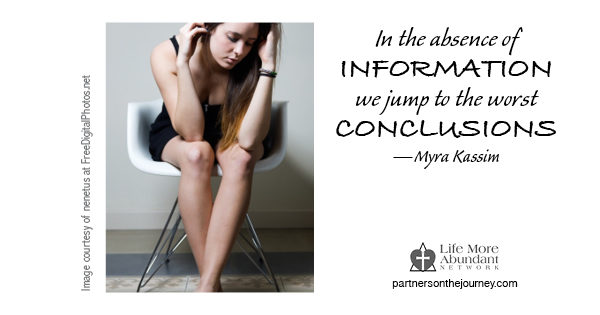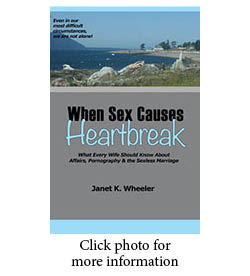Sometimes we wrongly accept the blame for our husband’s acting out.
Maybe you’ve even been told it’s your fault because you’ve put on weight, let yourself go, or haven’t felt like “pleasuring” him lately. It’s not unusual to get sucked into that rationale and begin to feel like it really is your fault. But, as we’ve said many times on this blog, his acting out is never YOUR fault.
Hopefully the truth of this is beginning to seep in. Maybe you’ve even seen glimpses of how the roots of his addiction were sown long before he met you.
But, what if his acting out seems to be getting worse? Could that be your fault? He might be mad because you’ve “outed” him. Maybe he’s trying to get back at you for establishing some boundaries. Could it be possible that his escalating behaviors are just a “push back” for asking him to stop?
Nope! It’s just “THE RULE” in action.
WHAT RULE COULD THAT BE?
All addictive behavior is governed by the rule of diminishing returns. That means that, as time goes by, it takes more and more of a behavior, or a riskier behavior, to get the same “high” or feeling of relief.
Our bodies have an amazing ability to adapt. You may have even seen it in your own life.
If you’ve been on any kind of long term regimen of medication—even aspirin—you may have noticed that after a while it doesn’t seem to be working as well. Instead of two pills to take away your headache, you may need to take three or four.
That’s because when your body gets two pills a day—day in and day out, it eventually adapts to that amount of those chemicals in your system. That level becomes the new standard.
If you take any less than that, you won’t feel normal . . . but that amount will no longer eliminate pain. Relief will only come when you take MORE than what has become the everyday requirement of your body.
The same is true with virtually all addictions. It doesn’t matter if the chemicals are from drugs or alcohol or from the hormones involved in sexual acting out. If you repeat the same “dose” often enough, having that level in your body becomes the new normal. To get any kind of reaction or relief you’ll have to increase the dose.
SO THE NEED BECOMES GREATER
Little by little, as the behaviors escalate, the addiction begins to take over the person’s life. Their body is continually demanding more and more of those chemicals to even feel normal. The biggest challenge becomes how to keep their body satisfied. If they don’t, they’ll find themselves struggling with increasing anxiety, irritability or depression. It’s not unusual to even have the ugly symptoms of an actual physical withdrawal, similar to that of a drug addict.
Almost like a remake of a bad sci-fi movie, this “body snatcher” increasingly permeates the addict’s thoughts until there is little time for anything else. Its #1 priority becomes finding more time for acting out or something more shocking to keep upping those chemical levels.
My husband tells me that prior to getting into counseling, nearly 98% of his waking hours (and a good share of his “sleeping” ones) were actively spent on his addiction. If he wasn’t actually in the process of acting out, he was lost in fantasies or thinking about when and how he was going to get another chance to pursue his addictive behaviors.
Once He got into recovery and began to have a little success, he found he had more and more days where he didn’t act out or even have a desire to act out. That freed up time and brain space for him to think about and experience a variety of other things.
He began to revisit some of the activities he used to enjoy before the addiction became such a glutton of his time. There was new energy to try some new things and develop new friendships. He was able to start learning to enjoy life again instead of constantly looking over his shoulder in fear that his secret life would be discovered.
HEALTHY LIFE CHANGES ARE THE KEY
Over time, these new experiences, deeper relationships, and healing of old wounds helped reduce his body’s prompting for the chemicals. His recovery efforts brought him other types of “feel good” chemicals that replaced the ones he had been so reliant on.
The escalation of your husband’s addiction is much more complicated than a simple reaction to what you’ve said or done. It’s not an attempt to get back at you, nor is it your fault.
Simply put, it has become a physiological issue that affects his mind, body and spirit. The good news is, with the proper help, it can be reversed!
“Then you will know the truth and the truth will set you free.” — John 8:32 (NIV)
TODAY’S CHAT: In the past, what conclusions have you jumped to about your husband’s struggle that have caused you undue grief, self-esteem issues, or fear? What, if anything, changed for you when you became aware of the truth?



Leave A Response